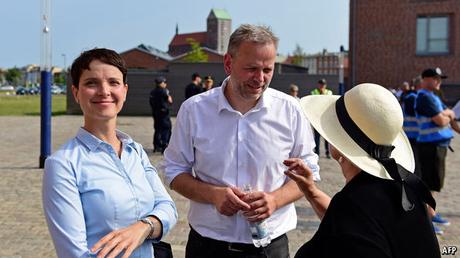
“WHEN the end of the world is nigh,” Otto von Bismarck allegedly said, “I will move to Mecklenburg, because everything happens 50 years later there.” Even locals agree that the north-eastern state of Mecklenburg-West Pomerania will always be a backwater. But backwaters can also be bellwethers. On September 4th, all Germany will be watching as Mecklenburg elects its state assembly, housed in a medieval castle on an island in one of Schwerin’s lakes. Not only is the state home to the electoral district of Chancellor Angela Merkel; it is the heartland of the Alternative for Germany (AfD), a populist right-wing party that is polling at 21%, a hair behind the largest mainstream parties. “We want to become the strongest party,” says Leif-Erik Holm, the AfD’s top candidate in Mecklenburg.
Even if it does, the AfD will not soon run Mecklenburg, or any other state. For that it would need a coalition partner, and no mainstream party will go near it. But it will almost certainly enter the Bundestag in the federal election next autumn, turning German politics into a six-party system. That fragmentation complicates coalition-building, and will put Mrs Merkel’s Christian Democrats…

